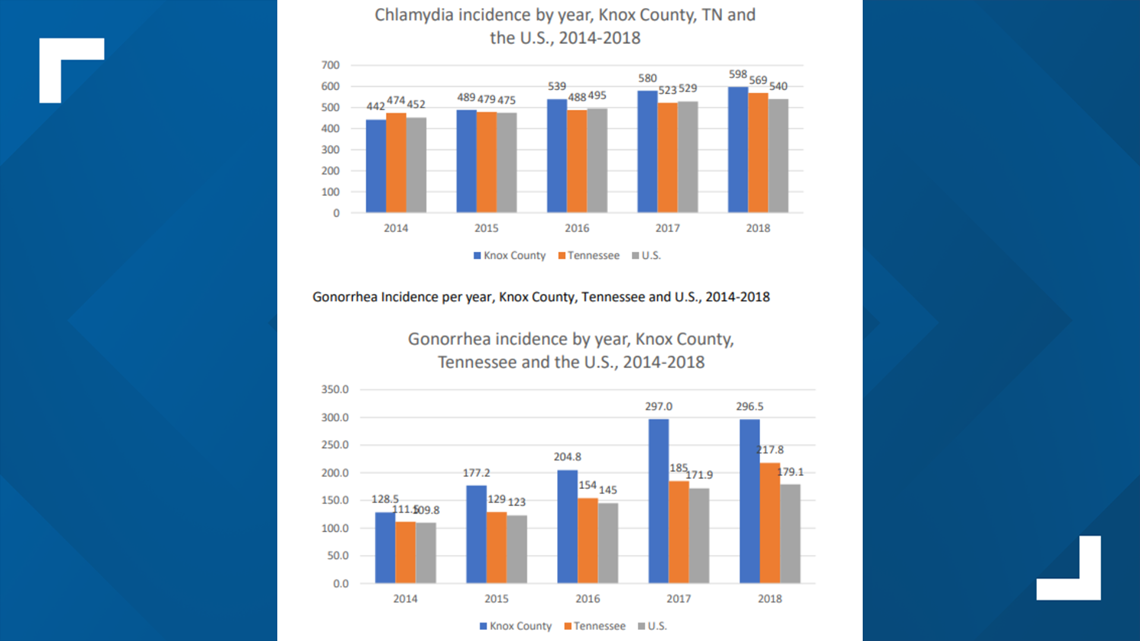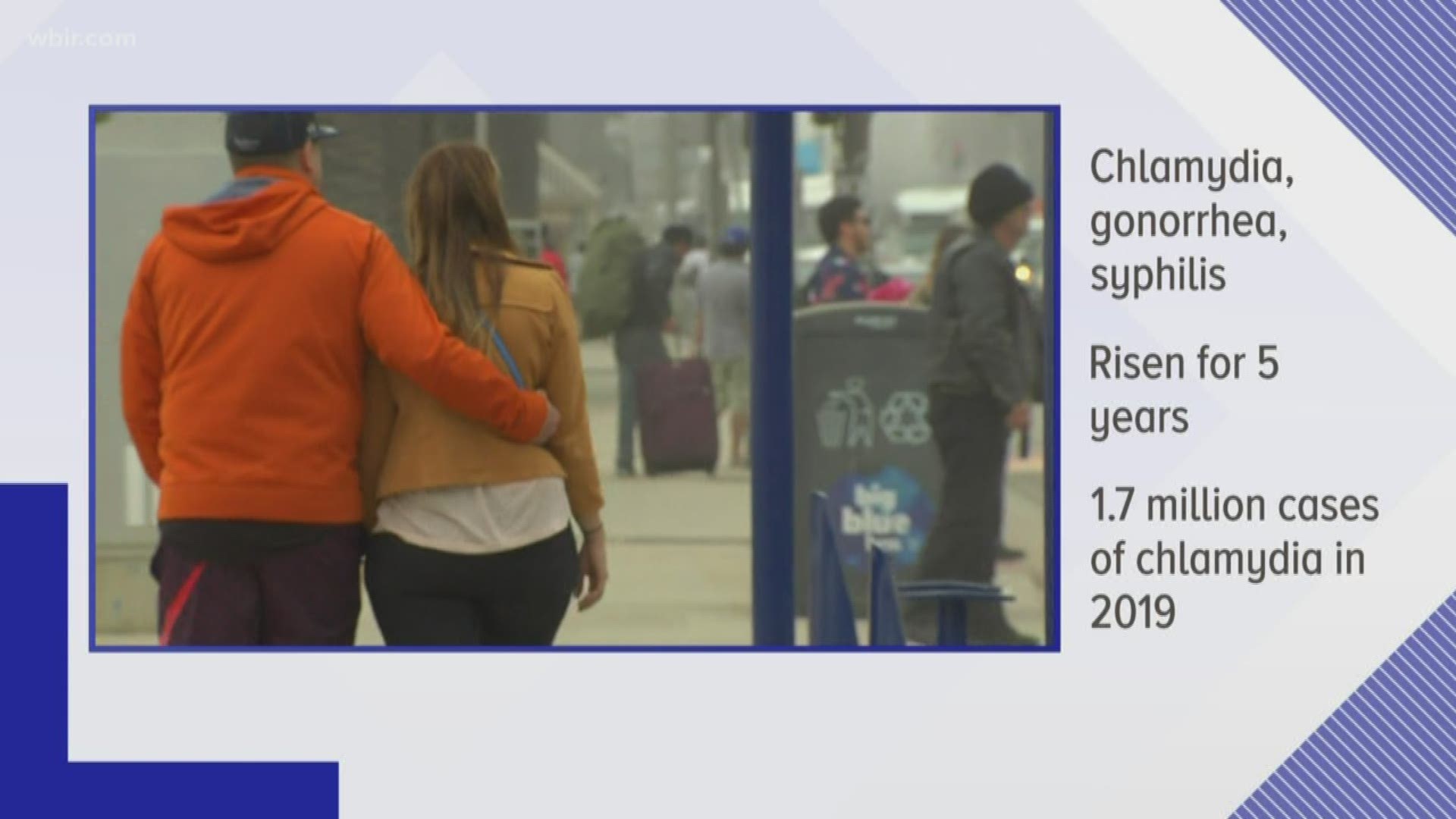KNOXVILLE, Tenn. — According to the CDC, more Americans are testing positive for certain STDs more than ever before -- and Knox County is no exception.
In Knox County, cases of chlamydia and gonorrhea rose more than the national average between 2018 and 2019.
The CDC reported Tuesday that cases of chlamydia, gonorrhea and syphilis have risen for the fifth year in a row to an new all-time national high. In 2019, Americans reported more than 1.7 million cases of chlamydia -- that's a 3% increase from 2017's infection rate.
Gonorrhea rates also rose 5%, with more than 580,000 cases reported. Scientists fear antibiotic resistance may be a factor, the Associated Press reported.
Syphilis had the highest increase: 15%. Americans reported about 35,000 cases of the disease's most contagious forms.
In Knoxville, infection rates have steadily climbed for years.
Knox County Health Department spokesperson Katharine Killen said numbers of chlamydia and gonorrhea infections reported in the county have consistently risen since 2014.
In 2018, the health department saw 1781 cases of chlamydia and 855 cases of gonorrhea between January and August. In the same nine months of 2019, it saw 1964 cases of chlamydia and 934 cases of gonorrhea. However, local cases of syphilis bucked the national trend -- decreasing from 73 to 69.
The 2019 numbers are preliminary; the health department said not all of them are confirmed as some still need to be fully investigated.
If confirmed, though, that's a 10% rise in chlamydia cases and a 9% rise in gonorrhea cases in Knox County -- more than twice the national growth. Knox County's STD numbers are also greater than in surrounding counties.
The health department provided the following charts, which show Knox County's STD incidence (rate) per 100,000 people compared with statewide and national averages between 2014 and 2018.


Killen said the higher numbers are mainly because the health department conducts contact tracing to discover people who may have contracted STDs from a partner that tested positive.
When people test positive for STDs in Knox County, the health department initiates the tracing process by encouraging the patient to either contact former partners directly, or ask them to anonymously disclose the names of partners who may have come in come in contact with an STD. Disease intervention specialists with the health department then notify any partners so they can further test and treat people along the chain who might have contracted an STD.
"More cases are detected in Knox County, therefore the number of cases and incidents will appear higher than other areas of the state," Killen told 10News in an email.

